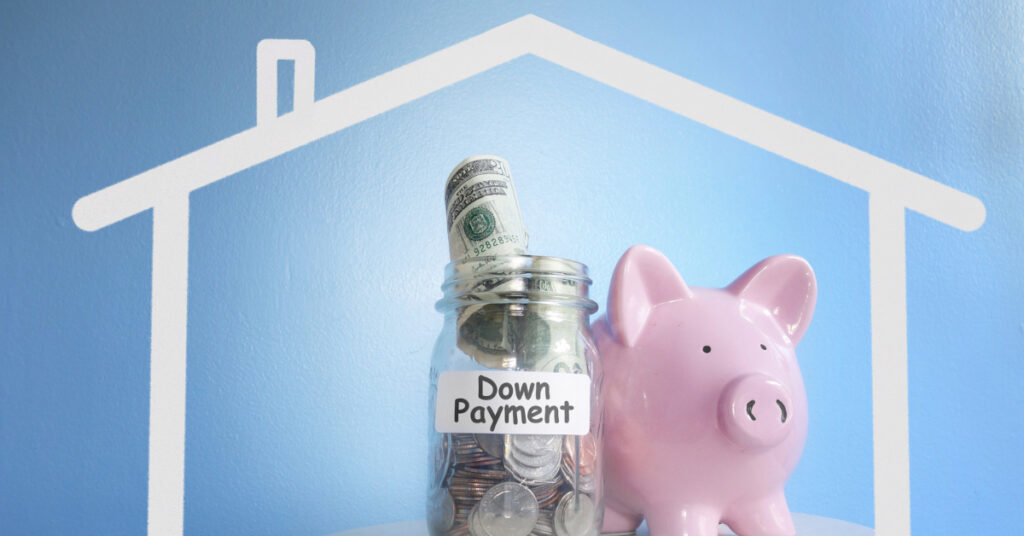In the dynamic world of real estate, grasping the concept of the average down payment required to purchase a property is vital for both buyers and sellers. This financial element significantly influences the real estate market’s flow and transaction dynamics. Let’s dive deeper into this subject to uncover essential insights that sellers should be aware of.
Understanding the Average Down Payment
The average down payment for acquiring a house is essentially the initial sum of money a buyer pays upfront when securing a property. This down payment serves as a tangible demonstration of the buyer’s commitment and seriousness towards the real estate transaction. It signifies their dedication and financial capability to proceed with the purchase. Typically, the down payment constitutes a percentage of the total purchase price of the house, reflecting the buyer’s investment in the property. It is an important aspect of the home buying process, highlighting the buyer’s responsibility and involvement in the transaction.
Factors Influencing the Average Down Payment
Several factors influence the average down payment required to buy a house. These include:
- Property Market Conditions: In a seller’s market, where the demand significantly surpasses the supply, buyers might find themselves needing to propose a higher down payment to distinguish their offers from the competition.
- Lender Requirements: Mortgage lenders typically set specific criteria for the minimum percentage of a down payment required for loan approval. Buyers who can afford larger down payments often benefit from more favorable mortgage rates and loan conditions.
- Property Price: The cost of the property itself is a major factor in determining the average down payment. Naturally, homes with higher price tags tend to necessitate larger down payments.
- Government Policies: Government initiatives and policies, such as those designed for first-time buyers or down payment assistance programs, play a crucial role in influencing the average down payment amounts. Umbrella Insurance Policiesextend beyond the coverage limits of your existing insurance policies, such as auto or homeowners insurance. It kicks in when the limits of those policies are exhausted, providing additional liability coverage.
Implications for Sellers
For sellers, comprehending the average down payment required to buy a house is crucial for devising effective pricing strategies and conducting negotiations. Here’s an insight into how it impacts sellers:
- Competitiveness: Properties that come with lower down payment requirements might draw in a broader spectrum of potential buyers, heightening competitiveness and potentially elevating property values.
- Transaction Security: A higher down payment not only gives sellers more confidence in the buyer’s financial stability and commitment to the purchase but also minimizes the risk of the sale collapsing due to financing issues.
- Negotiation Leverage: Sellers may consider the average down payment as a strategic factor during negotiations. A higher down payment might motivate sellers to accept an offer or provide certain concessions, making it a key element in the sale process.
- Market Awareness: Staying informed about current market trends and average down payment expectations is crucial for sellers looking to tailor their strategies effectively, thereby enhancing their prospects for a successful sale.
Frequently Asked Questions (FAQs)
What is considered a typical average down payment for buying a house?
The average down payment, influenced by factors such as property price and market conditions, usually falls between 5% to 20% of the total purchase price, offering a range for buyers and sellers to consider during negotiations.
Are there any government programs that assist with house down payments?
Indeed, some government initiatives offer support through first-time buyer programs or down payment assistance, aiding individuals in managing the down payment for their home purchase.
Can a buyer negotiate the down payment amount during the purchasing process?
Yes, the down payment amount is often a negotiable aspect of the sale terms, allowing both buyer and seller to reach an agreement that suits their financial and transactional needs.
What happens to the down payment if the sale falls through?
The conditions outlined in the purchase contract typically dictate the specifics, where the down payment might be refundable if the sale doesn’t proceed due to factors outside the buyer’s control.
Do different types of properties require different down payment amounts?
Certainly, the down payment requirement can vary, influenced by the property type (e.g., residential vs. commercial) and its location. Properties of higher value often necessitate larger down payments, reflecting their elevated market positioning.
Conclusion
In summary, the average down payment to buy a house is a critical aspect of real estate transactions. Understanding the dynamics of down payments is crucial for sellers. By grasping how various factors influence down payment amounts and its implications, sellers can more effectively navigate the selling process, achieving desirable outcomes. Keeping abreast of market trends and employing down payment-related strategies are pivotal for a successful and profitable property sale.



